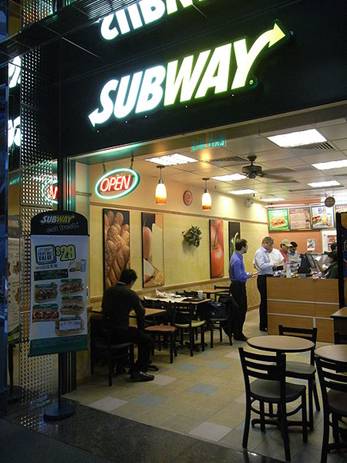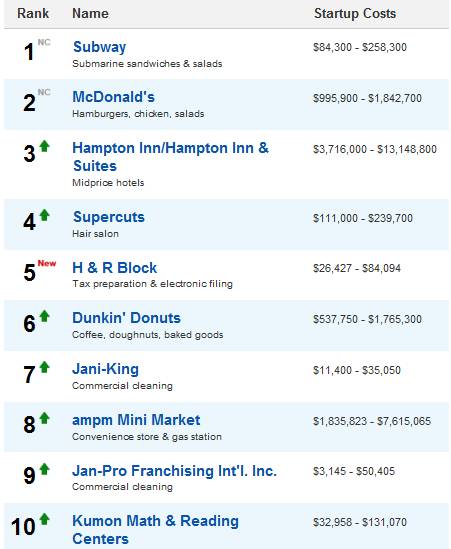Franchises
 A franchise may be set up as a sole trader, partnership or company. Examples are McDonalds and Subway.
A franchise may be set up as a sole trader, partnership or company. Examples are McDonalds and Subway.
A franchise is an agreement between two parties; the Franchisor and the Franchisee. The franchisee is allowed to use the brand name, logo, trademark and products/services of the Franchisor in return for:
- An up-front, one-off payment called a royalty to be allowed to use the brand name
- An annual share of the profits
There are clear advantages to setting up a new business as a Franchisee:
- There is no need to come up with a new idea - someone else has had it and tested it, too! Consequently failure rates are far lower than other start ups, often around one in ten.
- Larger, well-established franchise operations will often have national advertising campaigns and a solid trading name
- Good franchisors will offer comprehensive training programmes in sales and indeed all business skills.
- Good franchisors can also help secure funding for your investment as well as e.g. discounted bulk-buy supplies for outlets when you are in operation
- If aware that you are running a franchise, customers will also understand that the franchise is part of a much larger organisation, which may provide greater credibility
There also many advantages for the Franchisor:
- The business can achieve rapid growth without high capital investment and running costs.
- Franchisees are likely to be more motivated and committed than paid managers as increasing profits is a major incentive.
However, there are RISKS or disadvantages associated with franchising for both the franchisor and franchisee:
Franchisee:
- Costs may be higher than expected. As well as the initial costs of buying the franchise, the franchisee pays continuing royalties and may be required by the contract to buy products from the franchisor which may not be the best or the cheapest.
- The franchise agreement usually includes restrictions on the operation of the business. This may prevent changes to suit the local market.
- The franchisor might go out of business, or change the way they do things.
- Other franchisees could give the brand a bad reputation.
- The franchisee may find it difficult to sell the franchise - the terms of the contract may restrict sale to someone approved by the franchisor.
- Reduced risk means you mean lower profits.
Franchisor:
For the franchisor, there is a risk that a poor or unscrupulous franchisee may affect the brand image of the entire business. It is not unknown for franchisees to 'steal' an idea and then set up in opposition. Franchisors attempt to prevent this by restrictions in the franchise contract, but it may be very difficult and costly to enforce.
Franchising is a major growth area in many countries, because this model is considered far less risky and less costly than setting up a new business from scratch. Entrepreneur magazine produces an index of the top 10 global franchises (you can see the 2011 results here).
The top 10 Global Franchises (2010):


1 |
